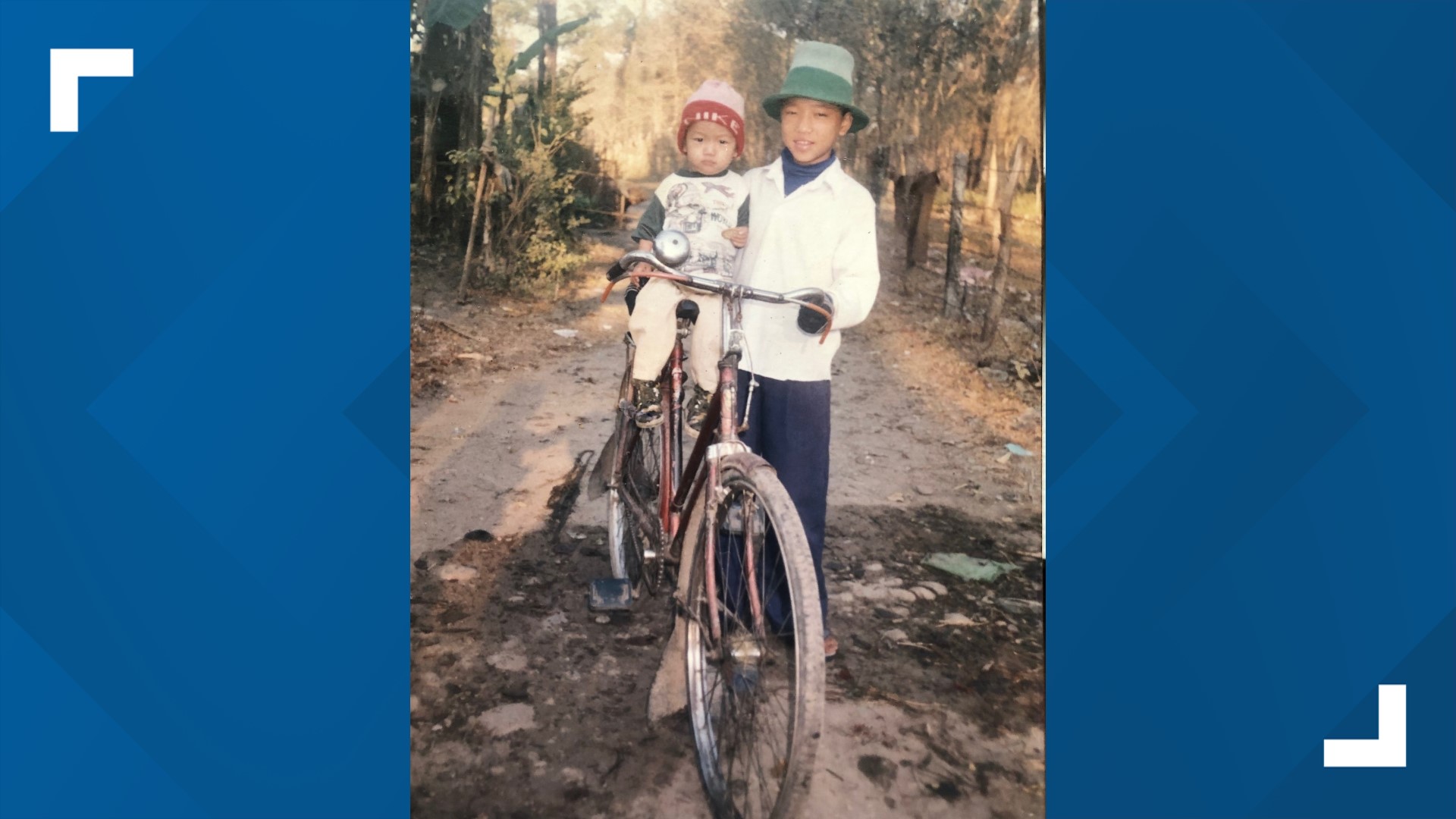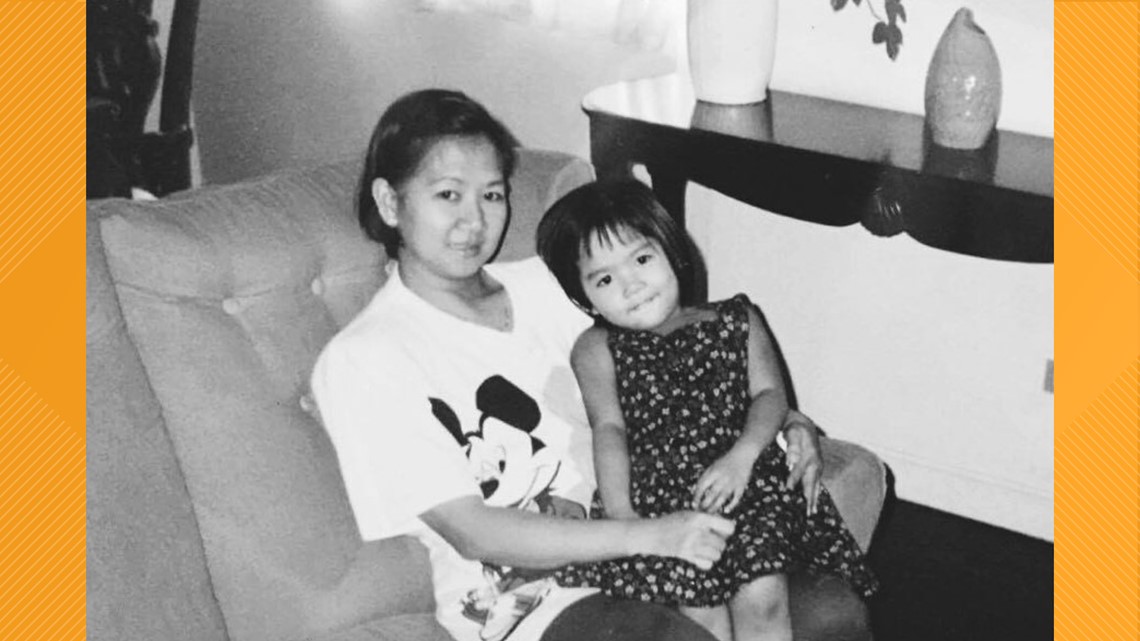Global Cleveland's Welcoming Week Celebrates Immigrants Virtually
A week dedicated to promoting Cleveland as a welcoming city to immigrants is going virtual this year.
Richmond, Virginia native Cecil Lipscomb made Cleveland his home in the late 90s.
“I’ve come to love Cleveland; I didn’t know how to pronounce Cuyahoga when I first got here. I didn’t know what the big deal was about east side versus west side,” said Lipscomb.
Now as Executive Director of the United Black Fund of Greater Cleveland, he’s joining a panel with African American and African immigrant leadership as part of Global Cleveland’s virtual Welcoming Week. He’s hoping to learn himself, while also educating others.
“What are some of the opportunities that we can benefit from by being in collaboration and cooperation with one another?” said Lipscomb. “I really do hope that out of this experience, that viewing, we’ll come away with the beauty of our diverse community.”
He’s one of more than 30 panelists taking part in the virtual event.
Joe Cimperman with Global Cleveland says Welcoming Week is an opportunity to make people’s stories and lives more visible.
“We are a community of immigrants, of newcomers, refugees, people who were born in another place and decided to make Cleveland and Northeast Ohio home. And so our whole point is to try to figure out how do we highlight them? How do we tell their stories? How do we tell the story of our community through their eyes and through the stories that they live and breathe through their lived experiences?” asked Cimperman, Global Cleveland’s President.
The virtual Welcoming Week will explore many topics through panels with African American and African immigrant leaders, journalists, the Latinx, and the international community.
Also included are cooking demos and international music groups, celebrating Cleveland as a welcoming city.
“And the whole point of this is to really kind of break down any barriers we have that are going on in these conversations,” said Cimperman, “if we all just take a second and think about somebody we know who was born somewhere else and make life easier, they’re going to communicate that to other people who are from outside the United States, and they’re going to start to put Cleveland on their map.”
Akron police officer recalls naturalization ceremony after many put on hold due to COVID-19
AKRON, Ohio — Any refugee or immigrant who migrates to the United States will probably recall the day they became an American citizen as the best day of their life. They will share photos from the day, the American flag they immediately bought and the certificate they receive. In 2020, the coronavirus pandemic brought those exciting times to a halt as naturalization fees also skyrocket.
Author: Megan Gallagher, Lindsay Buckingham, WKYC
Published: 10:00 AM EDT September 12, 2020
Updated: 10:54 AM EDT September 12, 2020
As Cleveland prepares to restart some ceremonies thanks to Global Cleveland’s Welcoming Week, one Akron police officer recalls his story and the day he became a US citizen with 3 News, to celebrate the return of naturalization ceremonies, and highlight their importance.
“U.S. is basically the land of opportunity, and essentially it’s actually a couple of miles away from heaven,” says Damber Subba.
That is how Subba remembers America as being described as a young kid. Though he would grow up to become a successful American citizen, who still to this day recalls his naturalization ceremony as the best day of his life, Subba is no stranger to a life of struggle and deep pain.

He grew up amid the “One Nation One People” policy put in place by the Bhutanese government in the 1990s. Though he does not remember much, Subba knows the terrible things happening to his people at that time. His family and community spoke Nepalese, though the government forced them to speak the language of Dzongkha. They were also forced to wear certain clothing, which led to peaceful protests. Many people were tortured and thousands died. That’s when Subba’s family knew they needed to leave.
At just 2-and-a-half years old, Subba was living along the Mahi River in Nepal in a refugee camp. He remembers having no food, no clothes and sleeping under a hut made of tree branches and leaves.
“After we went to Nepal, I do remember some of the instances very vividly, and those are not the greatest memories,” he says.
The camp took a toll on his family, the only thing Subba had at the time. His sister died of measles, with no hospital or medicine nearby to even provide aid.

“It was rough because there was no health center or hospital nearby. I remember just her just laying on the ground and we just watched her die.”
Eventually, the United Nations Refugee Agency and the Nepal government moved his family to another camp in Beldangi, where they lived for 17 years. Subba says he clearly remembers how it felt to not belong, to struggle and to want more for his family. So when news spread via word of mouth of the possibility of coming to the United States, he didn’t believe it.
“We were definitely excited. … Those times, you know”
Subba says there were no TVs for the news, no cell phones and no way of communicating, so the idea that several countries were allowing refugees to resettle seemed like a rumor. But in 2008, Subba and his parents, younger brother, and two sisters made a home in Akron.
Subba immediately began work to better himself. He worked at the Akron Foundry Company while also going to college and training to become a professional interpreter. He became a nationally certified Medical Interpreter in Nepali Language and started to work for Akron Children’s Hospital. He says he enjoyed bridging the gap between healthcare workers and their non-English speaking patients.
Then in 2014 came the big day. He found an identity and a home within the United States.
When I get an opportunity…that was the greatest feeling.”
Subba says he immediately bought a big U.S. flag and hung it in front of his house and bought a flag for his car. His next step was becoming an Akron police officer, a goal he achieved in 2018.
On May 4, 2018, the Akron Police Department welcomed 12 new police officers, and two reserve officers, when they took…
Posted by Akron Police Department on Monday, May 7, 2018
Since then, Subba has not only worked in some strenuous police missions, but with the community policing department to speak for those who may not understand English. Subba recalls helping rescue an elderly person paralyzed, laying in the house for couple days without any help, rescuing dogs, rescuing children, solving violent crimes and neighborhood disputes due to cultural differences. During the pandemic, Subba also translates important PSAs for non-English speakers.
Representative Jesús "Chuy" Garcia - Welcoming Newcomers To Cleveland
Global Cleveland’s Welcoming Week features events that celebrate cultures!
Author: wkyc.com
Published: 1:40 PM EDT September 11, 2020
Updated: 1:37 PM EDT September 11, 2020
Global Cleveland's Joe Cimperman Talks "Welcoming Week"; Sound Of Ideas Reporters Roundtable
Global Cleveland's Joe Cimperman Talks "Welcoming Week"; Sound Of Ideas Reporters Roundtable
AUTHOR: Drew Maziasz
AIR DATE: Sep. 11, 2020 at 9:00 am
Welcoming Week: Global Cleveland highlights immigrants who are making a difference
CLEVELAND — For the past 10 years, cities across the United States take a week in September to highlight newcomers and immigrants in their towns.
Right here at home? Global Cleveland’s Welcoming Week will do the same.
Global Cleveland President Joe Cimperman spoke to us ahead of the event:
“These are people right now who are in the operating rooms, you know, who are delivering packages, who are working in restaurants, who are really part of our community and our economy.”
Author: Lindsay Buckingham, WKYC
Published: 8:10 PM EDT September 9, 2020
Updated: 8:10 PM EDT September 9, 2020
Cleveland is a welcoming town. We’re friendly. We open our homes to those who need help, And, that’s exactly what Global Cleveland wants newcomers to feel when they arrive here to start their new lives.
“What Welcoming Week does, is it says, ‘This may not be your first home, but it is your home now,'” Cimperman said.
This year, Welcoming Week is virtual. From September 11-18, participants will take part in health panels, ethnic cooking demonstrations and listen to international music guests.
Plus, there’s also a drive-in naturalization ceremony. The initiative is close to Cimperman’s heart.
“I’m going to get emotional with you. My mom came here from another country. Our family basically lived its life in an immigrant neighborhood,” he shared. “If you want to feel America in her beauty and her greatness and her power, if you go to a naturalization ceremony, and you see these individuals who come from all over the world, and they’re choosing us.”
Jenika Gonzales, 29, chose Northeast Ohio at just 14 years old. But her mother began the process years earlier.

“I think around 98′, my mom left us in the Philippines. I was seven years old,” Jenika shared.
Her mother moved to L.A., working four jobs, sending every penny to her four children so they could come to the U.S. for a better life.
“I was 14 years old. I was so afraid,” Jenika told us. “I think the culture was just so different. I went to a private school thanks to my mom because, she was, you know, working really hard.”
It was an unfamiliar world, but Jenika was determined to thrive in it. She went to the Cleveland Institute of Art, then to Tri-C to earn a degree in graphic design.
“I just kind of hustled. I worked with bands, I worked for local artists, you know, I kind of just built up my portfolio and connections,” Jenika said.
Now, she works for Global Cleveland. She doesn’t take for granted the experiences it’s afforded her.
“I think it’s just an amazing intersection of journey and just the compilation of all the things that I experienced, now embodied in one organization,” Jenika shared.
She’s also teamed up with her mom — going all the way back to her roots. Together, they make a Filipino dish called Lumpia, trying to make it popular in Cleveland.
She’s got an Instagram page, and some of the profits have helped paid for lawyers dedicated to bringing other family members to the U.S.
Looking back, Jenika says choosing *this* home was worth it.
“We do it for our families. You know, I wasn’t going to cry. But I do it for my mom … for her sacrifice.”
– WKYC
Global Cleveland weeklong cooking demos scheduled

CLEVELAND, Ohio – Global Cleveland is offering five virtual cooking demonstrations as part of its Welcoming Week 2020.
The events – slated for Sept. 11-18 – focus on culture, community, economy, and internationality.
The demos, themed “around the globe,” are all noon to 1 p.m. The chefs also will talk about their lives, and the recipes will be made available.
Here’s the lineup:
Monday, Sept. 14: Lumpia (Filipino fried spring rolls) with Jenika Gonzales.
Tuesday, Sept. 15: Strudel (Slovenian pastry) with Julie Tromba.
Wednesday, Sept. 16: Chicken Thali (Nepali) with Nithya Pradhan.
Thursday, Sept. 17: Kasspazn/Käsespätzle (German cheese spaetzle) with Louis Hanika.
Friday, Sept. 18: Sambusas (Congolese beef-filled pastry pockets) with Esther Ngemba.
A joint statement by Mayor Frank G. Jackson City of Cleveland & Joe Cimperman President of Global Cleveland
UCC, others criticize US plan to ban travel from more countries
UCC, others criticize US plan to ban travel from more countries
-By Hans Holznagel
Published on 01-27-2020
The news conference, held jointly with Global Cleveland, a nonprofit that welcomes international newcomers, came on the third anniversary of the Trump administration's Muslim travel ban, which bars migrants, refugees and asylum seekers from Iran, Libya, Somalia, Syria and Yemen, as well as North Korea and Venezuela. It also came in response to President Trump's plan to expand that list to include seven more countries – something he had mentioned during a wide-ranging Jan. 22 news conference at the World Economic Forum in Davos, Switzerland.
January 31, 2020
Cleveland groups speak out against travel ban
Cleveland groups speak out against travel ban
-By DARCIE LORENO, Fox 8 Cleveland
Published on 01-27-2020
Global Cleveland and United Church of Christ held a press conference Monday in opposition of the country's travel ban. The group discussed what it feels are the ban's negative effects.
January 31, 2020
Cleveland improves national ranking in immigration hospitality
Cleveland improves national ranking in immigration hospitality
-By Megan Gallagher, Mark Naymik, WKYC
Published on 11-13-2019
"We were the city that moved up the most across the country," President of Global Cleveland Joe Cimperman explains, "That is so important especially when at this time. When there are people who want to build walls, the city of Cleveland is building bridges."
January 31, 2020




